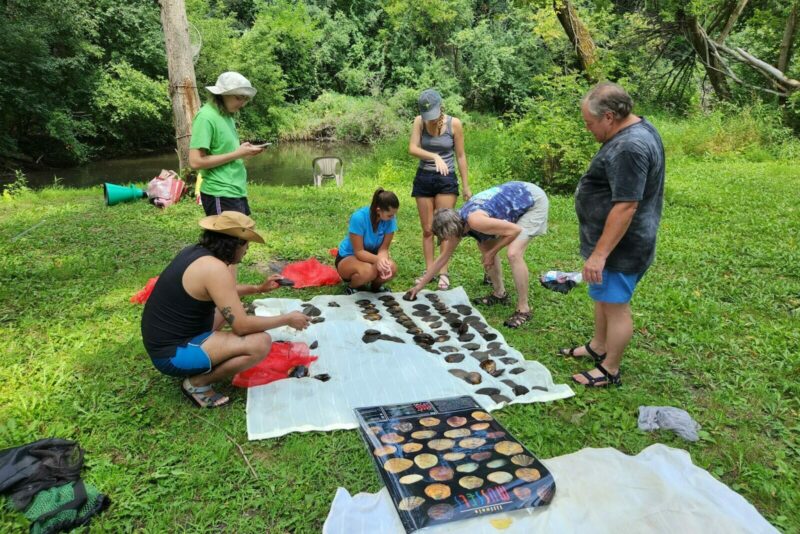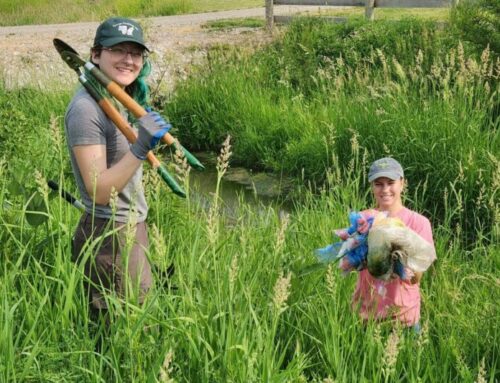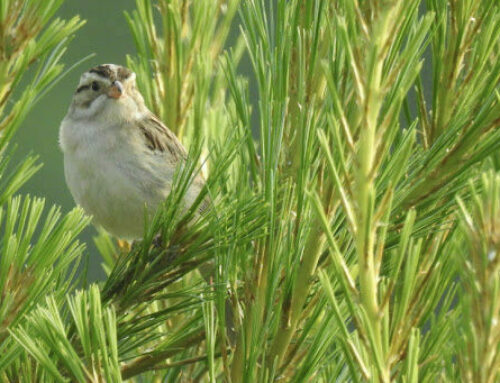Written by Mills Guanci
Photos by Kentaro Inoue
This July, Defenders Water and Natural Resources Protection Action Team interns had an amazing opportunity to go mussel sampling with scientists from the Shedd Aquarium and Forest Preserve District of Cook County. The outing was led by Dr. Kentaro Inoue, a biologist who specializes in freshwater mussels. He leads research trips all over the Great Lakes region to study freshwater mussels, which are the subject of conservation concern. By learning more about mussels, we can better support their population numbers and health. 
In order to find out how many mussels were in reach of the creek sampled, we had to get in and look for them. We wore wetsuits and kneeled in the stream. We dug along the creek bed with our hands to find mussels. Other mussels were found using a tracker that beeped when it hovered over a tagged mussel. These mussels had been previously found and tagged in order to determine repeat finds over the multi day sampling event. The tags also made them much easier to find, which will be helpful for future studies.
During this trip, we counted the mussels in a specific stretch of the creek. We identified them, and the Forest Preserve District of Cook County took samples to test for disease. After counting, identifying, and sampling the mussels in the plot, Dr. Inoue tagged the newly found mussels. The tags are applied to the shells and do not harm the mussels. Once we finished sampling the plot, we searched downstream for more tagged mussels in order to track how many mussels were washed downstream. We didn’t count any untagged mussels found downstream because in order to take an honest sample, there must be limiting parameters. All tagged mussels had originally been found within the plot, even if they now reside downstream, so our sample contained all tagged mussels and those untagged mussels found within the plot (which were also promptly tagged).
Freshwater mussels are in grave danger of extinction. Habitat loss is considered the biggest threat to their populations. Human creations such as dams can devastate their ecosystems by turning flowing water into pools where mussels are not adapted to survive. Water diversion tactics, dredging, and other changes to their environments have similar effects. Mussels also experience stress from the effects of climate change, such as intense weather and warmer waters. They suffer from commercial fishing, the introduction of invasive species, and exposure to pollutants.
While I believe that mussels deserve protection due to their innate value, they also serve vital functions that support their ecosystems. They keep our water clean by filtering algae, bacteria, and even heavy metals and silt. Mussels live a long time, and a healthy population of adult mussels can ensure the long-term health of a body of water. They serve as members of the food chain, and their shells even provide necessary habitats. Mussels don’t move very effectively independently, so they are indicators of water quality due to their inability to move somewhere safe. This means that it is our responsibility to maintain their habitats. Research such as that conducted at the Shedd is vital because it gives us an idea of the extent of the issue and what needs to be done. It also helps to show changes over time. We can use this information to tailor conservation efforts to the needs of the mussel. Scientists, volunteers, and community members are all vital members of this process, giving people like you or me a chance to get interested and get involved!






